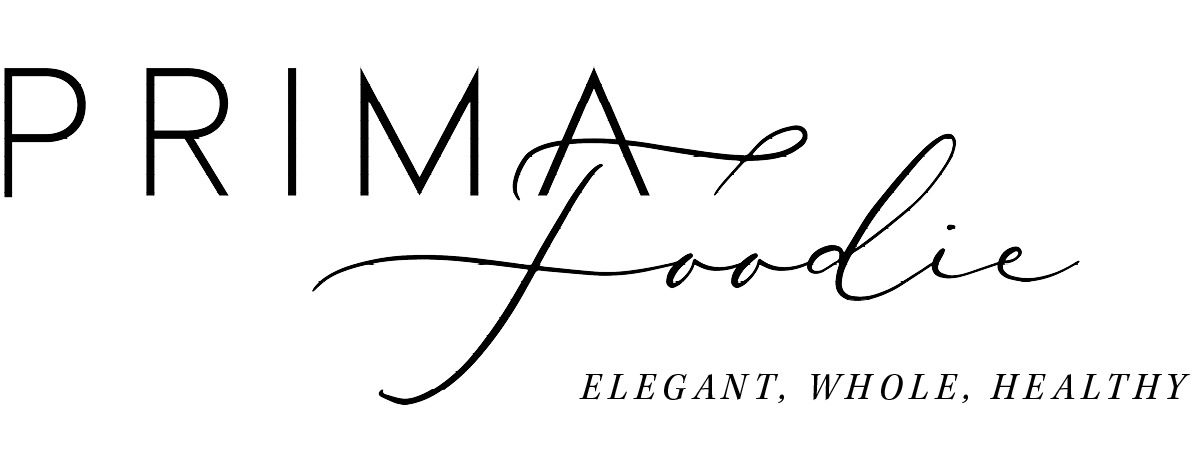A Short Guide to PrimaFoodie-Approved Alternative Sweeteners
Reducing sugar is one of the hardest nutritional feats. For starters, we’re chemically wired to crave it. Continued research shows that sugar is as addictive—if not more addictive—than cocaine. Added to this is the hard fact that sugar is everywhere. Literally everywhere. It’s added to processed foods like sauces, condiments, packaged snacks, and drinks, and it’s naturally found in whole foods, including vegetables, fruits, and grains.
This all may sound overwhelming. In many ways, sugar is the substance that haunts us. But we can have agency over it—and this starts with rethinking how we sweeten our foods. A healthy start is to stop using any processed sugars, which include refined table sugars and sweeteners. These have a higher glycemic index that can cause our blood sugars to spike. (Processed sugars are also linked to inflammation and decreased immunity.)
On the contrary, there are some natural substances that lend a sweetness to foods and offer a healthier alternative to the ubiquitous white crystals. (Some also offer small amounts of beneficial nutrients.) Here are our seven PrimaFoodie favorite alternatives to conventional processed sugar.
Date Syrup
Date syrup is made by boiling down dates and straining them. The result is a thick, sweet syrup that’s perfect for desserts, drizzled on fruit, or even added to sauces. Dates provide a substantial amount of essential potassium, as well as vitamin B6, magnesium, and iron.
PrimaFoodie Pick: Joolie’s Organic Medjool Date Syrup
Maple Syrup
It seems that maple syrup is finally getting the culinary attention it deserves. This mineral-rich liquid, which is made from concentrating the sap from the Sugar Maple Tree, is as excellent weaved into dressings and sauces as it is drizzled on pancakes and into desserts. When purchasing maple syrup make sure it is pure (there are many fake options on the shelves).
PrimaFoodie Pick: Butternut Mountain Farm Organic Maple Syrup and Coombs Family Farms Organic Maple Syrup
Coconut Nectar
The coconut palm tree flower releases a sweet sap via its flowers, which is then boiled down and turned into a thicker syrup that is rich in potassium, zinc, iron, and B vitamins.
PrimaFoodie Pick: Coconut Secret Coconut Nectar
Coconut Sugar (also called Coconut Palm Sugar)
The next iteration of coconut nectar, coconut sugar comes from the coconut palm tree flowers. The sweet sap is boiled down, made into a syrup, and then dried and crystallized to form granules.
PrimaFoodie Pick: Madhava Foods Coconut Sugar
Stevia
Native to Brazil and Paraguay, the stevia plant grows green leaves that are naturally sweet. Cultivators harvest and dry the leaves and then steep them in hot water to extract the steviol glycosides, which are the sweetest components. This is then usually made into a liquid or powder. Stevia does not impact the body’s blood sugar levels like sugar does. Because it is substantially sweeter than sugar, it can be cloying for some. We find Stevia best used for baking. It can fall victim to high amounts of processing, so always look for one that is pure and labeled organic and fair-trade certified.
PrimaFoodie Pick: Pyure Organic All-Purpose Stevia
Monk Fruit
Derived from the Asian siraitia grosvenorii plant, monk fruit is a versatile sweetener for baking or adding sweetness to sauces and dressings. It can be compared to stevia, mainly because it is naturally much sweeter than sugar and also doesn’t impact the body’s natural blood sugar levels. Monk fruit sweeteners haven’t been studied as much as other sweeteners, therefore it is important to treat them as alternatives to real, whole food and to use them occasionally in small amounts. Look for one that is processed in the purest way, without dextrose and other additives.
PrimaFoodie Pick: Lakanto Monk Fruit Sweetener
Honey
There's a good reason why honey is like liquid gold. This natural substance made from hardworking honeybees boasts numerous health properties including antioxidants and minerals (such as calcium, copper, iron, zinc, and more). It’s also varied in flavor depending on the type of nectar the bees extract. When choosing a honey, always look for raw and unfiltered varieties that ideally come from a local beekeeper.
PrimaFoodie Pick: Check out all our favorites here.
PrimaFoodie Editor’s Note: While these seven alternative sweeteners do provide better options over conventional processed sugar, it is still important to consume these in moderation.
